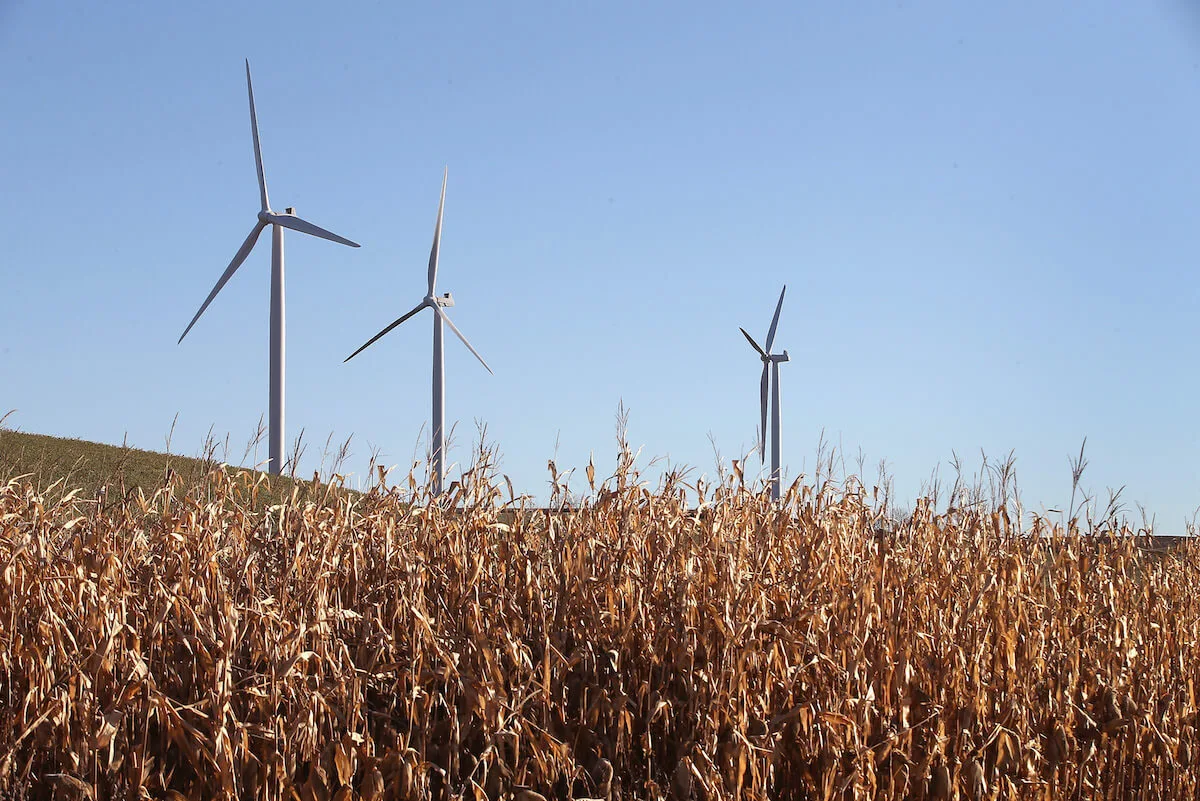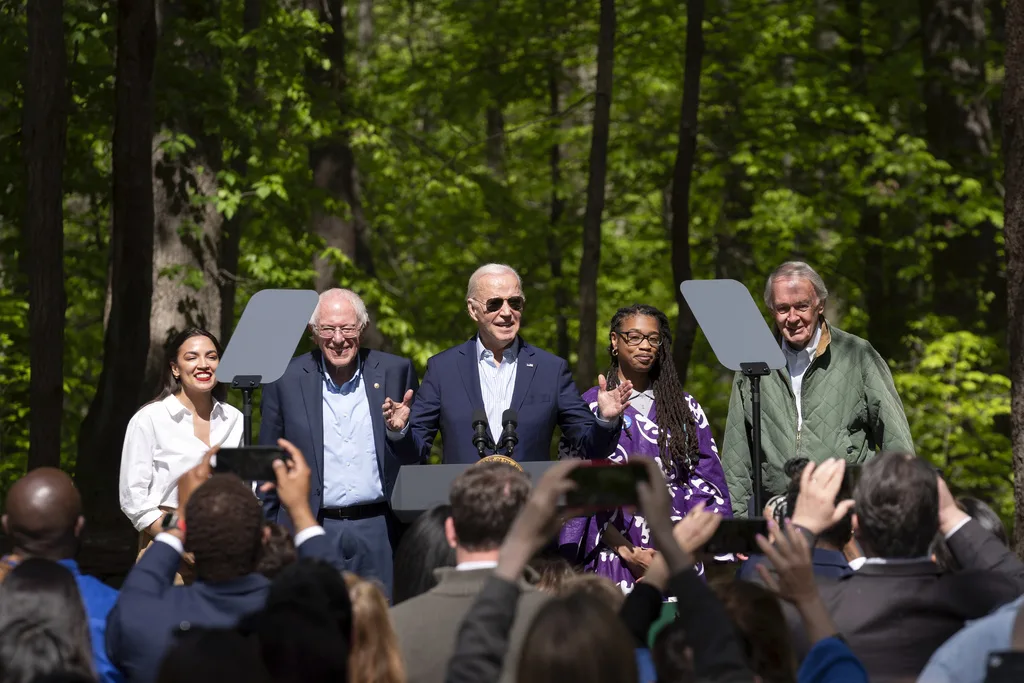
#image_title
#image_title
The Trump administration and GOP control of the Legislature have hampered funding of initiatives to reduce pollution.
For years Jennifer Giegerich has watched various Wisconsin communities forge ahead with measures to address climate change and environmental concerns, trying to reduce their carbon footprints.
But many of those plans were hamstrung and could only go so far because of a lack of funding and a hostile reception from Republican leaders, Giegerich, government affairs director for Wisconsin Conservation Voters, and other local and state leaders of such efforts told UpNorthNews. Dollars for such projects have been hard to come by in always-tight local government budgets. At the same time, state funding for such initiatives has decreased during the past decade under the Republican-led Legislature.
“It was our local communities who stepped up and made bold plans,” Giegerich said. “They had the commitment to address climate change and the environment. What they really needed was funding.”
Funding for those projects and many others to better address the climate crisis could soon be on the way if President Joe Biden’s American Jobs Plan garners the support of Congress. The bill, currently being discussed by Congress, includes $2 trillion for a wide range of infrastructure needs, ranging from roads and bridges, to rail, to schools, and green energy initiatives.
The infrastructure proposal is among numerous actions related to climate change and environmental protections enacted and proposed during the first 100 days of Biden’s presidency. The president sent a strong signal about his commitment to those issues when among his first actions was reinstating America as a partner in the Paris climate agreement.
RELATED: Baldwin: Infrastructure Damaged Due to a Changing Climate Should Be Built Back Better
Since then, Biden has acted to reverse the executive actions of former President Donald Trump that rolled back environmental protections, and he has pushed for other pro-environment measures, such as cutting this country’s carbon emissions in half by 2030, revoking the permit for the controversial Keystone XL pipeline, and halting federal oil and gas development in the Arctic National Wildlife Refuge.
The president and his administration have enacted numerous other actions related to the environment, including signing an executive order prioritizing environmental protections, increasing government regulatory powers regarding environmental issues, making the climate crisis a national priority, and initiating the Climate Innovation Working Group to boost progress on green energy, carbon reduction and other climate-related initiatives.
Leaders of environmental organizations and other backers of climate change efforts generally credit Biden’s work so far to support climate change and the environment, seen by many as the most ambitious plan to address those issues of any president. While more remains to be done on that front, most say the president has accomplished much during his first 100 days in office.
Tony Wilkin Gibart, executive director of Midwest Environmental Advocates, said Biden’s having the US rejoin the Paris climate agreement is “crucial” and sent a strong message that climate change and environmental issues are an integral part of his national policy. Funding so far “is a good start, but more is needed,” he said.
“It has been an ambitious and successful first 100 days in office,” Wilkin Gibart said. “The high-level changes and shifts he has made in American [environmental] policy have been really important.”
Giegerich echoed that sentiment, saying Biden’s actions related to climate change so far, and funding included in the American Jobs Plan and the American Rescue Plan, would provide a much-needed boost to past-due efforts to address the environment.
“This has been the most pro-climate administration we have ever seen,” she said. “It is amazing to see the very real commitment on climate and clean water, two things extremely important to Wisconsin. They are backing it up with plans and funding to make those bold ideas a reality.”

How much of the Biden administration’s climate change plans are enacted remains uncertain. Republicans in Congress have criticized the proposal as too expensive and far-reaching. They recently put forth a much-smaller $586 billion plan that restricts the scope of infrastructure to more traditional projects such as roads and bridges.
Wilkin Gibart and other environmental leaders said federal dollars are imperative because state funding for environment-related issues has lagged the need for years. Under Republican leadership for the past decade, the state Legislature has reduced environmental protections and funding for issues such as PFAS in drinking water. This week, the Joint Finance Committee will likely vote to remove some of Gov. Tony Evers’ proposals for the state budget that would strengthen standards to find and clean up PFAS-contaminated sites.
Federal funding to address environmental concerns and climate change included in the American Rescue Plan and the American Jobs Plan would be vital to not only addressing those issues, they said, but to creating jobs in both rural and urban parts of Wisconsin. Those dollars would provide funding for such projects as hiring staff to plan and implement climate change-related work, paying for electric buses, solar panels, replacing lead pipes in municipal water systems, and outfitting homes to make them more energy efficient.
“We’re really talking about transforming the economy in a sustainable way,” Wilkin Gibart said.
Included in the plan are investments in such areas as clean energy jobs; grants for sustainable energy initiatives including solar, wind, and electric vehicles; and funding to make homes more energy efficient, especially in communities most in need of such improvements. Such improvements are needed in communities across Wisconsin, said Kate Beaton, an Eau Claire City Council member who works as movement organizing director for Citizen Action of Wisconsin.
In 2018, Eau Claire became the second Wisconsin city to adopt a plan to be carbon neutral by 2050. The city has initiated numerous environmentally friendly efforts, such as buying hybrid buses. But funding constraints make doing more to address climate change challenging, Beaton said.
Now, she said, that could change, if federal funding to address those issues makes its way to states and local governments.
“This will be a make-or-break moment of these visions that are already being set by local communities,” Beaton said. “These federal resources would really be transformative.”
Further delays in addressing climate change would have significant ramifications, Giegerich said, noting government is already far behind on the issue.
“There is a huge cost to not doing enough about this issue,” she said. “This is a huge opportunity, and we need to make it happen.”
Polls show a majority of Americans believe government should do more to address climate change. Despite political divisions, Wisconsin environmental leaders said they think the same is true in the Badger State.
“Many people realize the federal government has a role to play in investing to help solve our climate change crisis,” Wilkin Gibart said. “I don’t think most people are going to accept failure with this.”
Politics

New Biden rule protects privacy of women seeking abortions
Under the new rules, state officials and law enforcement cannot obtain medical records related to lawful reproductive health care with the goal of...

Biden marks Earth Day by announcing $7 billion in solar grants
The Biden administration on Monday announced the recipients of its Solar For All Program, a $7 billion climate program that aims to lower energy...
Local News

Stop and smell these native Wisconsin flowers this Earth Day
Spring has sprung — and here in Wisconsin, the signs are everywhere! From warmer weather and longer days to birds returning to your backyard trees....

Your guide to the 2024 Blue Ox Music Festival in Eau Claire
Eau Claire and art go hand in hand. The city is home to a multitude of sculptures, murals, and music events — including several annual showcases,...



